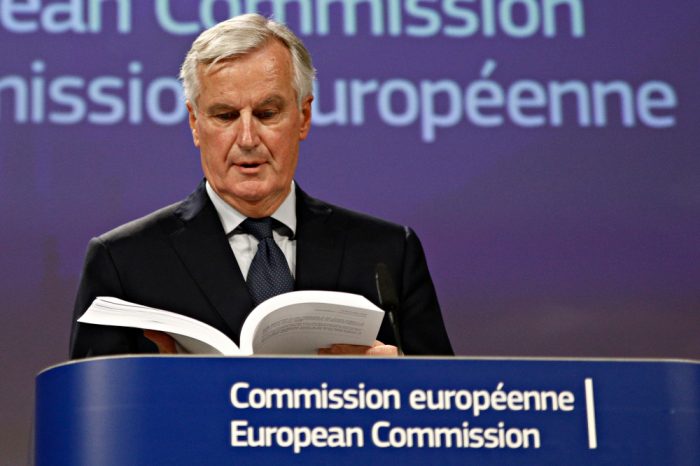Fisheries Part 6 – an exemption to the repatriation of the acquis
It would be easier for Fisheries if the UK would invoke Article 50 and do nothing more. This would mean that at the end of two years, we would start with no baggage and a clean slate. We would obviously have to have a full fisheries management system in place ready for Independence Day, but the problem is that we would need to have replacement legislation prepared in every other area too. Talking to a retired senior civil servant at the weekend, I was informed that this is impossible. Whitehall will not have a complete system of replacement domestic legislation ready in time.
So the Prime Minister may feel she has little choice but to repeal the European Communities Act (1972), while at the same time incorporating the full acquis, (in other words, all EU legislation) into our domestic legislation, because that would make for a very smooth transition on Brexit day As Baroness Nicholson said at a Conservative Home fringe meeting at the recent Tory conference, this means that nothing changes. In other words, the Great Repeal Bill which handles the EU acquis is no more than a continuation Bill, ensuring the country can function as normal.
Or is it? Let us go through the steps one at a time.
Many of us have been campaigning for the UK to leave the EU for many years. Invoking Article 50 will ensure that this happens. At the end of the two year period, we will no longer be a member of the EU. To quote Paragraph 3, “the Treaties shall cease to apply”, so, according to International Law. the UK has fulfilled its treaty obligations and honourably terminated its membership of the EU. This will have an effect on our future national reputation.
There are those who are urging the Government not to bother with Article 50 and just repeal the EC 1972 Act. They overlook what will happen if we take this path. The 1972 act is the mechanism by which all EU legislation is incorporated into UK law. If it is repealed, you will have ended the flow of EU legislation but the Treaties still remain. This means that technically we would still be a member of the EU, albeit one which has decided not to partake in any future legislation by choking off the entry point.
By contrast, by invoking Article 50, we can leave the EU, legally and honourably. We can then repeal the EC 1972 Act, whose other function is to make EU law superior to UK law. On repeal, UK law once again becomes supreme.
Having got to this point, the PM can say two things:-
1) the UK is not a member of the EU.
2) the UK rules itself.
That completes the objective for which we have been campaigning. Mission accomplished.
Now the next bit – the acquis.
All the acquis would be brought into domestic legislation to ensure there will be a smooth transaction from being in the EU to being out. This means that nothing will have changed as far as the content of the laws on our statute books are concerned .
What will have changed – and this is the critical bit – is that Parliament will have taken back all the competency they have previously transferred to the EU, back to Westminster. In other words, the laws now take their authority from Parliament. It is Parliament and no one else, who is responsible to decide about which parts of the acquis should be repealed or modified.
The “repatriation ” (or “nationalisation”) of parts of the acquis covering, for example, food safety or bathing water standards should not be a worry to anyone. These laws function well enough, even though they did not originate with our Parliament. We will have far too much to do in the two-year negotiation period allowed by Article 50 to have time to review legislation like this.
Fisheries, however, is another matter. Incorporation of the Regulations through which the Common Fisheries Policy was implemented will result in us ending up with a sort of shadow CFP, including its flawed quota system and most fish in the waters around our islands still being caught by foreign fishermen. The decline of the UK fishing industry will continue. If we begin independence with this unsatisfactory arrangement, it will not be easy to replace it at a later date with a bespoke fisheries management system better suited to the diverse nature of marine life found in our waters.
We therefore need to lobby Parliament to make an exception and the lobbying must begin as soon as possible. The House of Commons consists of people who we have elected as our representatives. We must ensure that they do what we want – and we have to make it clear what exactly we do want. The broad outlines have already been set out in an earlier piece I wrote
Our booklet, The betrayal of Britain’s fishing to the European Union concluded with the sombre statement that “Parliament has failed not just our fishermen: it has failed our country.”
It is up to all of us not to allow that to happen again. We must not put our feet up and think that the job is done once we have left the EU. We need to ensure that we get the best Brexit possible. This includes the best fisheries arrangement. Without some serious lobbying, my fear is that in this area, Parliament could fail us once more.







